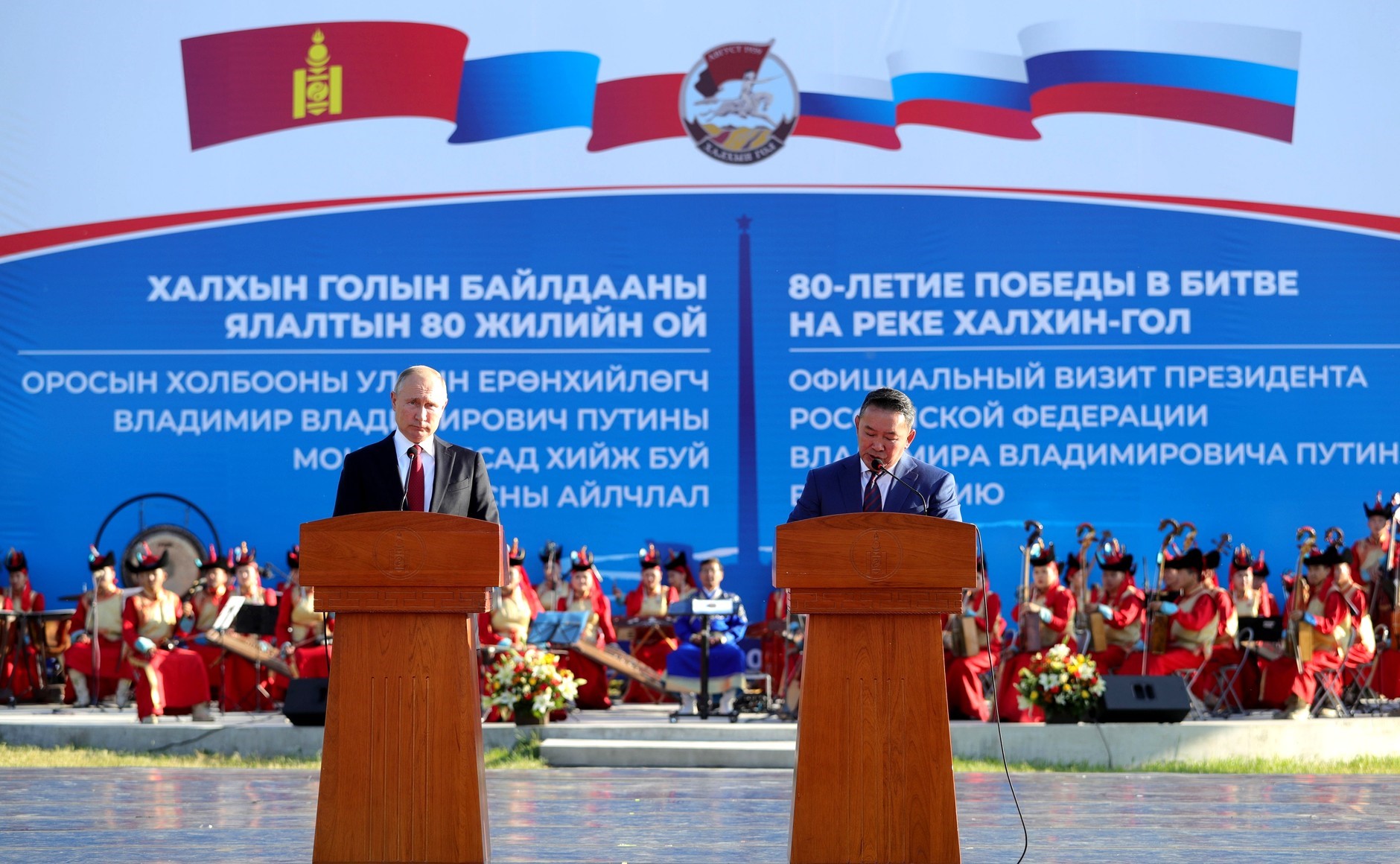RUSSIA MONITOR
Date: 8 September 2019
Putin Visited Mongolia: New Treaty, New Projects
Russia keeps strengthening cooperation with Mongolia, with Russian companies getting more and more active on the neighboring market, especially in the areas such as transport, infrastructure and energy. Signed by Russian and Mongolian officials, a new friendship and cooperation treaty confirms both the Kremlin’s interest in Mongolia and Ulaanbaatar’s political strategy that sees Russia as a counterbalance for pressure from China. Besides, Mongolia’s incumbent president is seeking to win as much as possible from his being closer to cooperation between Moscow and Beijing.

Vladimir Putin made a trip to Ulaanbaatar from September 2 to September 3, marking his third presidential visit to Mongolia. Putin previously had visited the country in November 2000 and September 2014. What was the highlight on Putin’s agenda was the inking on September 3 by the Russian president and his Mongolian counterpart a new permanent treaty on friendship and comprehensive strategic partnership. Once sealed, the new document replaced the existing 1993 Treaty of Friendly Relations and Cooperation. Still in Mongolia, Putin also took part in commemorating the 80th anniversary of the two countries’ combined victory over Japanese forces on August 20–September 16, 1939, along the Khalkhin Gol River. As he later said, the victory “was one of the reasons why Japan didn’t attack the Soviet Union in 1941 and it delayed its entry into World War II.” But what overshadowed the historical events was business, and Putin arrived in Mongolia with a considerable delegation of Russian businesspeople. High on the agenda during bilateral talks were infrastructural projects, among which was a contract for the state-run Russian Railways company for upgrading the Ulan Bator Railway, Mongolia’s critical transportation artery. Russia “is traditionally a reliable energy supplier for Mongolia,” Putin said, adding that Rosneft “provides most of the country’s demand for oil products.” In 2018, trade between Russia and Mongolia increased by 21 percent over the previous year to reach $1.65 billion, the Kremlin said. In the first six months of this year, trade grew by 11 percent to $800 million.
Support Us
If content prepared by Warsaw Institute team is useful for you, please support our actions. Donations from private persons are necessary for the continuation of our mission.
Following his visit to the country, Putin flew to Vladivostok to attend the annual Eastern Economic Forum, an event that took place from September 4 to September 6. While there on September 4, Mongolian President Khaltmaagiin Battulga announced that Vladimir Putin had backed a gas pipeline project whose route will run from Mongolia to China. Beijing, for its part, promised to study the proposal. A year ago Battulga had also mentioned the energy pipeline running through his country’s territory, insisting on building an “energy supernetwork” in northeastern Asia to connect energy systems in Russia, China, Mongolia, South Korea, and Japan. What Mongolia has offered may affect Chinese-Russian bilateral talks on gas connections from Russia to China. Under scrutiny is the route of the Power of Siberia gas trunkline, currently being built, through which gas shipments will be dispatched to China from Russia’s Eastern Siberia and Yakutia, or more precisely its western variant running to northwestern China through Altai. Mongolia’s latest proposal would take into account the modification of the route.
All texts published by the Warsaw Institute Foundation may be disseminated on the condition that their origin is credited. Images may not be used without permission.














